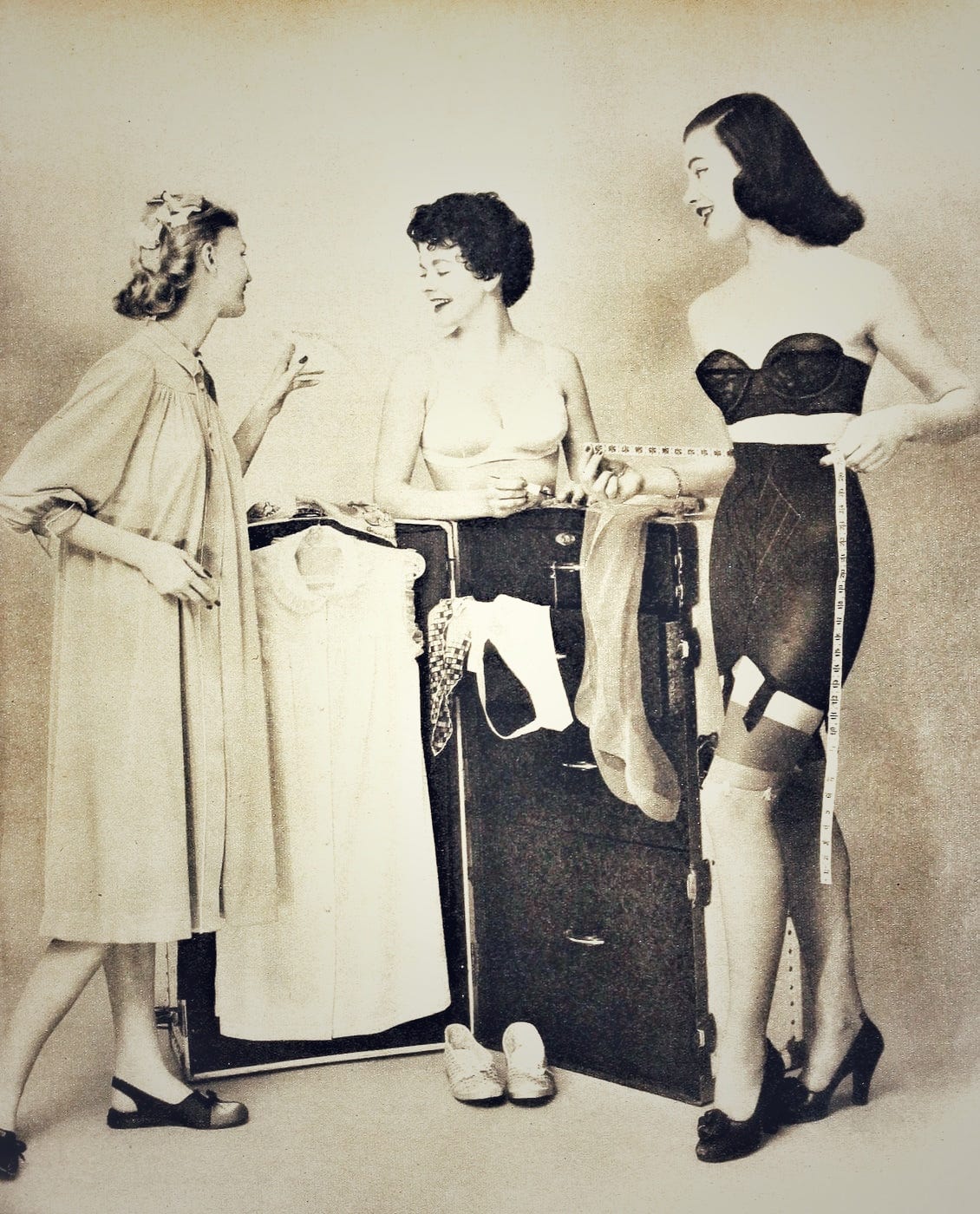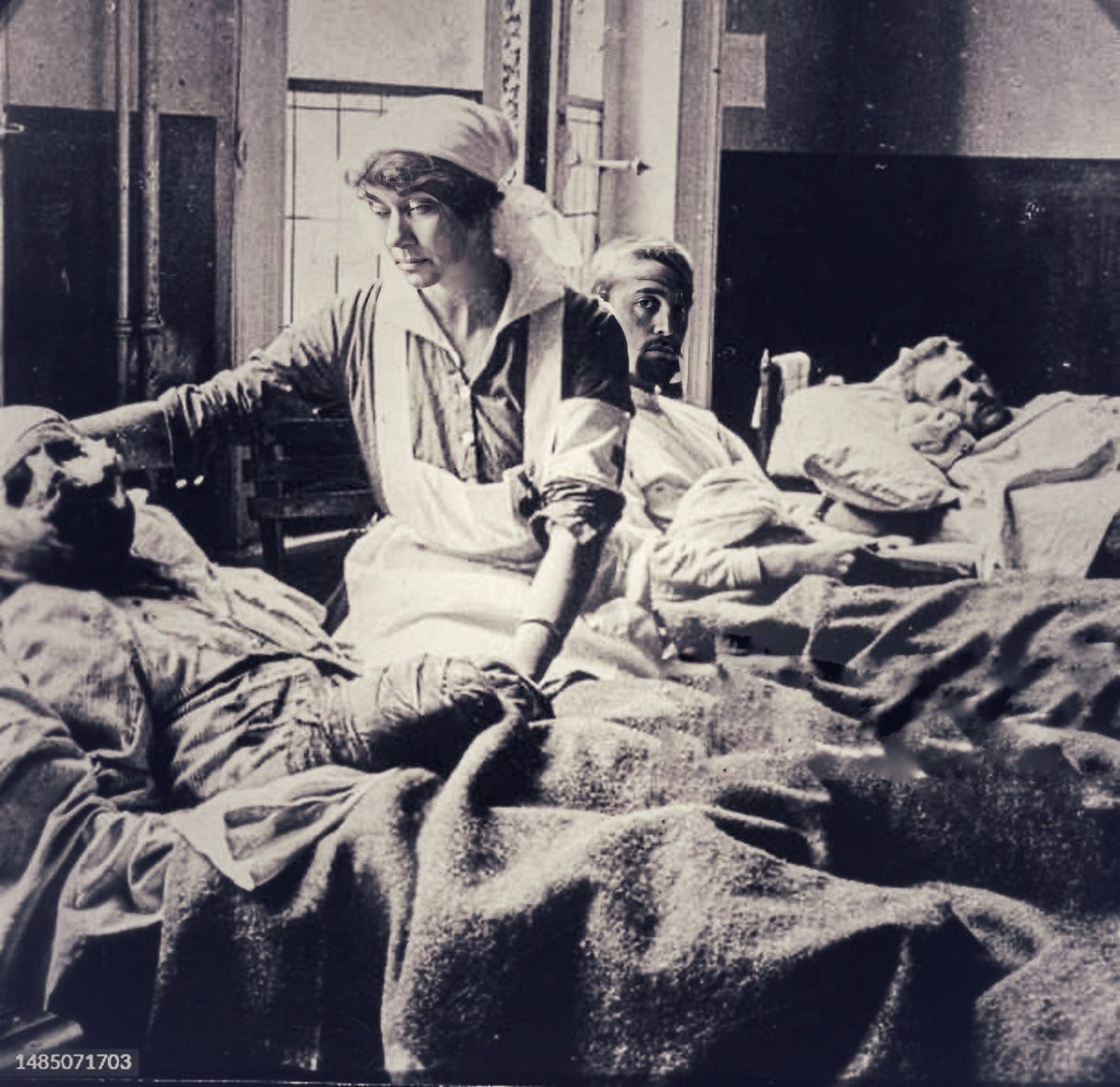So You've Decided You Want Cosmetic Work? What To Do Next: Part Three (Recovery Phase)
Final part of a three-part guide to what to do and expect next when you're considering cosmetic work. Today... the recovery phase!
You did it! You completed the Research Phase and the Prep Phase. Now you’re on the other side of your procedure and I am here to help…
This is Part Three - the guide to the Recovery Phase

General advice to protect your sanity and promote your well-being post-procedure
I know this will be almost impossible for you to adhere to, but: do not get overly pre-occupied with how you look during your recovery period
Do not go onto cosmetic work websites, internet forums1 or discussion groups
Even if you’ve been using them in the run-up to your surgery. Even if you have friends in the community there.
This is not a safe space for you right now. You are at very real risk of being pulled into unhelpful conversations or of comparing yourself to others in a way that could be extremely harmful.
The forum will still be there in a few weeks, once you’re significantly less vulnerable.
Do not spend time googling the after-effects of your procedure
At the risk of sounding unkind, the time to do this was BEFORE the work. Have I taught you nothing?
If you’re googling because you fear something has genuinely gone awry
Contact your practitioner before consulting the internet.
If you’re just googling because you’re obsessing about your recovery
Please see below
Do not obsess about how your recovery is going
I know this might feel really, really hard. But distract yourself however you can.
DO NOT post photos of yourself in the month after your procedure with the intent of soliciting opinions
We’re living in the age of social media, so there will likely be photos of you in circulation if your recovery is over multiple months. That’s somewhat inevitable, but I ask that you don’t post specifically with the intent of asking other people what they think about your work.
The only person whose opinion of your work matters is you, ultimately. Depending on validation from others is an unsustainable way to live your life2.
If you want to share your journey, take photos as many photos of yourself as you need along the way, but only post after your journey is complete. The internet will soldier on without your input until then.
If you do take photos, do not become slavishly obsessed with comparing your own before/after photos. Wait until the minimum amount of time advised by your practitioner to obtain your ‘final’ outcome has passed before you try to ring the changes.
Respond to the bare minimum of queries from loved ones about your result
If you’ve read and adhered to Part Two, you will already have managed peoples’ expectations about this.
If they still ask, just let people know that you’re healthy. Or ask for help if you’re not.
Obviously, you and your face/body are always together, and you can’t help looking at yourself as part of your day-to-day life.
If, though, you find that you are compulsively checking your appearance in a time-consuming and obsessive way, confide in trusted, non-judgmental loved ones. Consider speaking to a mental health professional if your appearance has become an unhealthy preoccupation post-procedure.
Similarly, if you find yourself avoiding mirrors to an unusual extent post-procedure, let someone approachable and close to you know. Have a chat with them about how you’re feeling about your appearance.

Your Physical Recovery
Non-surgical
This should be relatively straightforward.
You may experience some bruising or redness from injectables and some scabbing or peeling from laser treatments.
Avoid extremes of temperature and vigorous activity in the week after your procedure, in addition to any specific contraindications that you’ve been given.
You should have asked and been advised about the relative level of ‘discomfort’3 that you should expect during your recovery. This varies significantly by procedure, so I’m not going to attempt specific advice here.
If you experience significant pain or any notable physical symptoms that were not pre-advised by your practitioner, contact them immediately to discuss.
Otherwise, just wait it out and follow the timings that you’ve been given to expect your ‘final’ outcome.
For some procedures, you may have follow-up appointments for more treatment before the procedure is concluded (e.g. Profhilo, many laser treatments). Be patient and wait until your procedure is fully concluded.
Do not proceed further with any course of treatment that you think is at risk of damaging your face, body or wellbeing before discussing it with your practitioner.
If you’re getting Botox, it’s pretty common in the UK and US to be offered the opportunity for a top-up in the 2-3 week window after your appointment. This is because Botox can behave unpredictably and most practitioners want you to be happy with your result if the original injections didn’t quite hit the required spots. Don’t be shy about requesting this4. This shit is expensive.
Surgical
Leaving the hospital
If you’ve had surgery, you should have met with your surgeon after the procedure, before leaving the hospital or clinic.
Understand how they feel about your outcome. They should explain in detail how the surgery went, any complications and what their recommendations for your recovery are.
They should also let you know when they next want to see you for a follow-up, give you any specific instructions for between now and then and give you any drugs or post-procedure paraphernalia that you’re taking home with you.
You might still feel woozy if you’ve had an anaesthetic (local or general). If so, it is 100% okay to record this conversation with the voice note app on your phone.
Make sure you have someone either to take you home or to meet you at home after your procedure. Even if you think you’ll be fine.
If you had a general anaesthetic (GA)
I wrote about it here, but to reiterate:
Don’t be surprised if the GA leaves you feeling very weird.
Years ago, someone told me that your emotional state when you come round from a GA is a good barometer for your emotional wellbeing at that time.
I subsequently had 4 GAs in 2 years5 from 2008-2010 and ran the gamut from tears to laughter and back again. And another in 20206. From this admittedly small sample size, I would agree that it’s useful to have an awareness of your emotions immediately after you come around.
There is no right or wrong - tears are good, laughter is good, impassive bewilderment is good, all are welcome - but be aware of whatever is going on for you and take care of yourself. You may be feeling more vulnerable than you expected. Don’t ignore or dismiss it if so.
Your body may also be doing strange things as a by-product of your procedure. I projectile-vomited what felt like litres of thick black goo - it looked like Hell itself was hurling out of my mouth - about two hours after waking up from my first nosejob.
This isn’t uncommon after rhinoplasty - it’s blood that settled in your stomach during the surgery that your body then wants to expel7.
It was revolting, but I’d be lying if I said it wasn’t the most satisfying vomit of my entire life8. All purged out in one treacly, disgusting, perfect arc; curving in the air and directly into the bowl with barely a splash.
I still think about it fondly sometimes.
At home
The emphasis here is on taking it extremely easy so that your recovery doesn’t end up getting extended because you tried to do too much, too soon.
As mentioned in the prep phase, recovery from surgery can be incredibly boring. Do what you can to stave that boredom off. Your aim is to keep exertion to a minimum, other than a daily constitutional walk (if you’re comfortable being looked at during this period).
Things To Do
Box sets/binge watch
Books
Podcasts
Jigsaws/Video games (both tricky on the 3 days of ice-ing)
Trusted friends and family coming over
Don’t be tempted to work out too soon afterwards. If you’re a very keen bean, for whom exercise is a de-stressor, check with your practitioner how soon you can get back at it and HEED THEIR ADVICE. It’s what you’ve paid them great piles of your hard-earned cash for.
Things To Eat
Soft, easily digestible food
Smoothies with
Kale/spinach
Blueberries/kiwis/strawberries
These all contain high levels of vitamin C and antioxidants9, which you need to be mainlining right now.Pineapple
Contains bromelain (which I talked about here and reduces swelling)
Almonds/almond butter
Almonds are high in Vitamin E, which promotes skin and cellular healing
Throw in a raw egg if you can stomach it. This is the easiest way for you to consume protein - also essential for cell repair - without chewing right nowSoup - esp homemade, with a lot of green vegetables
This Nigella recipe is super easy, even in your weakened state
So is this one from Liz Hurley10
You may want some prune juice or Fybogel about the place. Surgery can play havoc with your digestive system (the pea soup above will also help).
Probiotic yoghurt and/or kefir are also a good idea to aid digestion during recovery
And hydrate, hydrate, hydrate. Drink tedious amounts of water. If you’ve had a surgery that makes bending over to use the loo a nuisance, think about getting a Shewee.
Limit caffeine for the week after your surgery. It heightens your blood pressure, which you don’t want. You can have tea and coffee, but don’t find yourself drinking 4+ cups a day because you’re bored.
If you’re taking arnica and bromelain, keep taking these for the 2 weeks after surgery.
Things To Wear
Soft, comfy, easy-to-put on clothes
Button/zip-up clothes and drawstring trousers are your friends here
Ice, Ice Baby
If you’ve had facial surgery, consistently icing afterwards will reduce swelling.
As advised in the prep section:
Prepare appropriately-sized ziploc bags of ice in your freezer (filled with water so they’re about half a centimetre high when lying in the freezer).
Wrap these in cloth (if you use a flannel mitt to wash your face, bob them in one of those).
NEVER put the ice directly on your face. This can cause freezer burn and/or frostbite.
You do not want frostbite.
Then put an oven glove on your hand. Thank me later.
Hold the cloth-wrapped bag of ice against your face for 20 mins, then swap sides/area and repeat. Replace the bag as necessary when it’s no longer cold.
For your nose, you’re icing either cheek as close to the nose as you can get to it one side at a time. You’re not icing the bridge - this will be covered by a cast.
For eyes, do one eye at a time. At least then you can see out of your other eye. Make sure your ice pack is big enough to go from the top of your eyebrow to your cheekbone - you will experience bruising and swelling all over this area, not just your eyelids/sockets.
For full-face or chin/jaw/mouth work, ice one small area at a time, then move the icepack to another area in 20 mins
If you’re only icing one area, ice for 20 mins, then take a 10-minute break, then reapply.
This is how you’re going to spend as much of your day as possible for 3 days. Enjoy! (I promise it’s worth it.)
A final word on your physical recovery after surgery
If you have a good awareness of your body and the speed with which/way you heal physically, trust what’s right for you. If you’re fortunate enough to have skin routinely that bounces back, with minimal swelling, you may have to take fewer steps than someone who heals more slowly.
If you’re not sure how you heal, err on the side of caution.
And remember (as we’re about to get into), your physical recovery is only one part of the recovery phase. Surgery is traumatic on the body, even when done skillfully and cosmetic surgery will always carry an emotional component.
Just because you’re no longer visibly bruised or swollen, don’t assume that your recovery is ‘over’. Your emotional recovery is equally important and needs its own process.
Your Emotional Recovery
Think about who you’re surrounding yourself with in the weeks immediately after your work, especially if you’ve had surgery.
We have all had (and maybe BEEN) the thoughtless friend who blurts out something entirely unhelpful. If you have some much-beloved but undeniable foot-in-mouthers in your acquaintance, just steer clear from them until you’ve integrated the work that you’ve had done.
If anyone in your acquaintance engages you in a conversation that makes you feel anxious about your procedure, start by saying “I’m not finding it helpful to chat about that right now.”
If they persist and there’s no medical reason for them to be concerned, repeat that you’re not finding the conversation helpful and leave/ask them to leave if they don’t stop.
Be prepared for complex emotions
You might feel no different and feel weird that you don’t feel different.
You might find it weird that your face or body has changed. It might feel strange, even alien.
If you’ve had a change that has changed an ethnic or family ‘legacy’11 trait, you may feel a loss of identity in the aftermath of surgery.
You may experience massive regret.
You may have a lot of bruising and swelling, contorting your appearance. These will go down! Keep taking your supplements and resting.
It might all HURT a lot more than you’d expected.
You may realise after your procedure that even though you’d thought you knew what outcome you wanted, you now realise that you hadn’t fully identified what you were hoping to get from the procedure. This can be disappointing.
You may feel anger or sadness that you didn’t get this done sooner.
During this period, a lot may come up for you.
Let it come and practise whatever self-care is helpful for you (but avoid exercise or anything strenuous until your initial recovery phase is complete).
LISTEN TO YOUR BODY.
If you don’t have a self-care practice and have no idea where to start, the Insight Timer app/site has a) a truly terrible name b) an incredible selection of meditations, workshops and guides12.
If you have a therapist, make sure you let them kno all of the emotions that you’re experiencing. Keep the sessions scheduled as usual - whatever condition you’re in, they will have seen worse. Just make sure you’re not flopping out of any clothing.
The importance of continually striving for deep self-love and inner acceptance
If you’re reading this thinking ‘This feels a bit over the top for a bit of Botox, love,” please don’t lose sight of the fact that all cosmetic work is an attempt to reconcile what we see in the mirror with what we’d prefer to see.
The reasons why that reconciliation exists are often complex and bear thinking about and resolving if possible.
Many people are able to look in the mirror every day without wishing their reflections were different. That doesn’t make them ‘better’ than those who get cosmetic work and they almost certainly have other, different, insecurities of their own.
Don’t beat yourself up about wanting/getting cosmetic work, but do stay aware of your vulnerabilities and don’t try to ignore them.
If you fear something has gone seriously wrong with your procedure
If something is Obviously Wrong - e.g.
You’re bleeding in a way/place/volume you shouldn’t be
You have a fever
An implant has noticeably dropped
You have a seeping/oozing wound that smells bad
You’re experiencing pain that isn’t a normal by-product of the procedure
Consult your practitioner or surgeon immediately. Don’t go online for advice first. Talk to the person responsible for your procedure.
If their response doesn’t satisfy you and you are genuinely concerned for your health (not “I thought I’d be prettier but I don’t feel prettier”), then take yourself to A&E (the ER).
There will be a separate post on what to do in the aftermath of genuinely botched work. Since the vast majority of cosmetic work has a successful outcome (yay!), it doesn’t make sense to me to discuss Worst Case Scenarios in detail here.
So that’s you all done!
I wish you endless joy with your new face/body/look.
And, if in a little while, you start to think that you might want another little something, DON’T FORGET THE RULES.
The 6 Rules of Cosmetic Work (per me)
If something bothers you every time you look in the mirror, it’s worth considering cosmetic work – SUBJECT TO THE OTHER FIVE RULES. Understand that cosmetic work alone (no matter how good your surgeon/aesthetician is) will not change your life and is not a substitute for the deep inner work of self-acceptance and fierce self-love.
I’ll be here if you need me x
Yes, I know it’s fora. But if you care about this: you and I are literally the only two and everyone else rolls their eyes at us. Such is our lot in life 🤷🏼♀️.
The euphemism for ‘pain’ so beloved of professionals who are about to inflict pain on you. Wankers.
N.B. They will only top-up within the parameters of your original request. You can’t get 2 areas done and then go back and demand a 3rd for free because you didn’t expect to have any lines at all with only 2 areas treated. But if you’ve paid for “no movement” and you can still, well, move, they’ll generally see you right.
2 rhinoplasties, my wisdom teeth removed and an operation on my wrist to fix a shopping injury. Really. My life is a cartoon.
Lady garden. Let’s leave it at that.
If this has made you shudder and you’re considering surgery, then surgery may not be the right option for you. THIS SHIT GETS REAL.
I wish that my many plant medicine experiences had been as straightforward. Those are stories for another day…
TL;DR: Antioxidants boost your immune system by protecting your body's cells from harmful free radicals. Further layperson description here.
Which from this amazing article (pretty sure it was originally in Elle or Marie-Claire) that I never, ever forgot 😂
e.g. Many people in your family have the same distinctive nose or chin
There are many sites available, obvs, but I use this one weekly and it’s less well-known than some of the others. This is #notanad 😊





